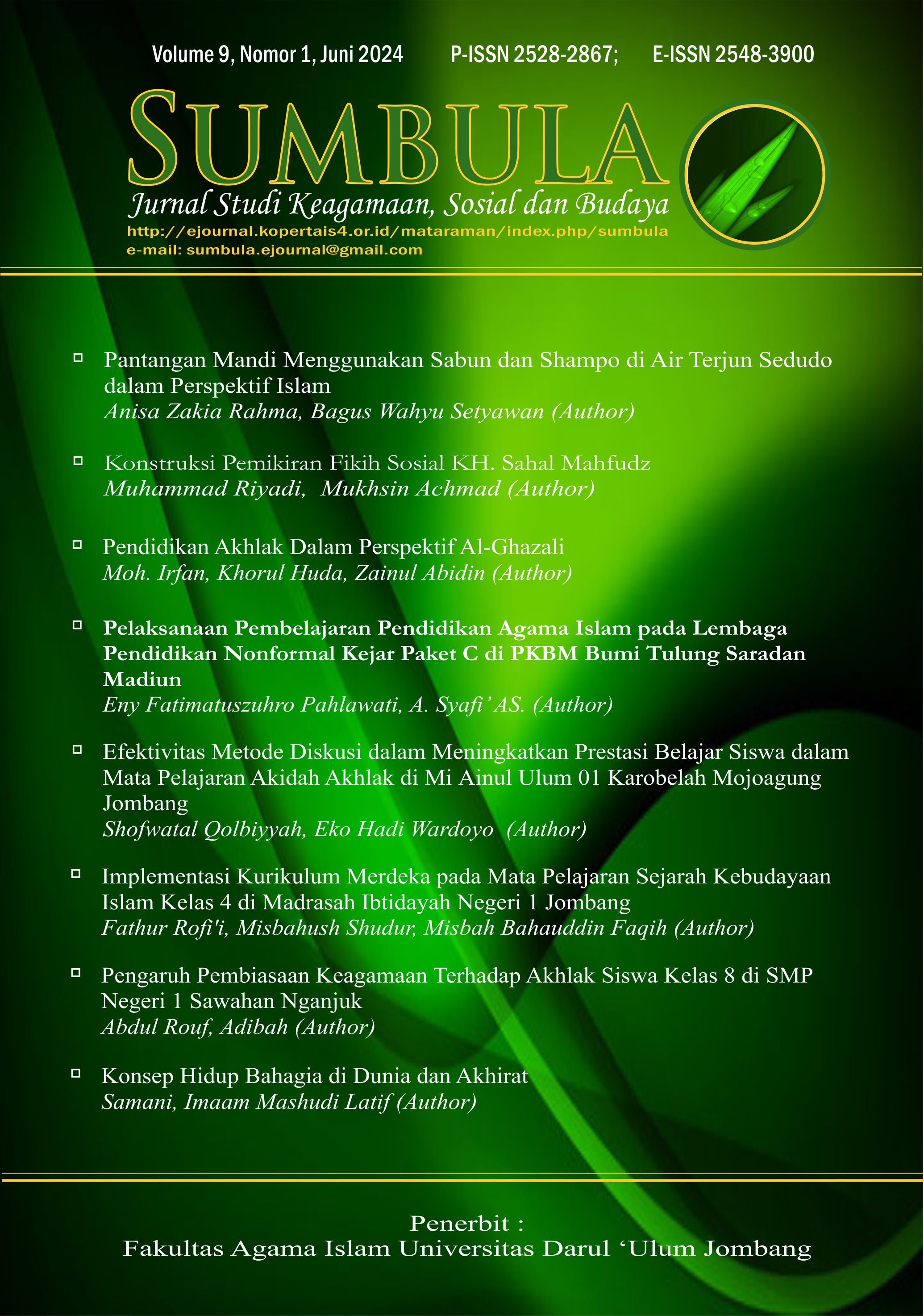Pendidikan Akhlak dalam Perspektif Al-Ghazali
Abstract
This research aims to describe Moral Education from Al-Ghazali's Perspective.
This research is library research using a qualitative descriptive approach. Data collection uses documentation methods, while data analysis uses inductive and deductive analysis.
The results of this research show that moral education is the core or peak of all forms of education. This education is actually the goal of the entire existing education system. So the main exemplary factor becomes a very important part of the teaching method.
Keywords: Moral Education, Al-Ghazali
References
Arifin, Muhammad, Ilmu Pendidikan Islam (Jakarta: Bumi Aksara, 2008)
Arikunto, Suharsimi, Prosedur Penelitian Suatu Pendekatan Praktek (Semarang: Rineka Cipta, 1997)
Bakhry, Sama’un, Menggagas Konsep Ilmu Pendidikan Islam (Bandung: Pustaka Bani Quraisy, 2005)
Daulay, Haidar Putra, Pembelajaran Pendidikan Islam di Indonesia (Jakarta: Rineka Cipta, 2009)
Departemen Agama RI, Al Qur an dan Terjemah (Jakarta, 1995)
Ibnu Rusn, Abidin, Pemikiran Al Ghazali Tentang Pendidikan (Yogyakarta: Pustaka Pelajar, 1998)
Maulana, Deddy, Metodologi Penelitian Kualitatif (Bandung: Remaj Rosdakarya, 2006)
Mujib, Abdul, Ilmu Pendidikan Islam (Jakarta: Kencana, 2006)
Na’im, Ngainun dan Ahmad Syauqi, Pendidikan Multikultural Konsep dan Aplikasi, (Bandung: Ar Ruzz Media, 2010)
Nata, Abudin, Filsafat Pendidikan Islam (Jakarta: Griya Media Pratama, 2005)
Copyright (c) 2024 Moh. Irfan, Khoirul Huda, Zainul Abidin (Author)

This work is licensed under a Creative Commons Attribution-ShareAlike 4.0 International License.
- All material contained in this site is protected by law. It is prohibited to quote part or all of the contents of this website for commercial use without the approval of the board of editors of this journal.
- If you find one or more articles contained in Sumbula: Journal of Religious, Social and Cultural Studies that violate or potentially infringe your copyright, please report it to us, via email to Priciple Contact.
- The formal legal aspect of access to any information and articles contained in this journal site refers to the terms of the Creative Commons Attribution-ShareAlike (CC BY-SA) license.
- All Information contained in Sumbula: Journal of Religious, Social and Cultural Studies is academic. Sumbula: Journal of Religious, Social and Cultural Studies shall not be liable for any losses incurred by misuse of information from this site.






